The Sun Shines Bright
Brief Synopsis
Cast & Crew
John Ford
Charles Winninger
Arleen Whelan
John Russell
Stepin Fetchit
Russell Simpson
Film Details
Technical Specs

Synopsis
In a small riverside town in turn-of-the-century Fairfield County, Kentucky, kindly old Judge William "Billy" Pittman Priest is running for re-election. As the judge prepares for a day in court, the morning steamboat arrives, to the delight of the black residents who work and play along the levee. One of the town's prodigal sons, young Ashby Corwin, is returning home and greets his friends in his usual happy-go-lucky style. When he sees old Dr. Lake's ward, Lucy Lee, however, he is momentarily dumbfounded by her beauty. At the courthouse, Judge Priest's black servant Jeff snores through the pompous declarations of prosecutor Horace K. Maydew, who is Priest's competition in the upcoming election. Things get more lively, though, when elderly Uncle Pleasant "Pleas" Woodford complains on the witness stand that his nephew, You Ess Grant Woodford, spends more time at his banjo than at a useful job. Young Woodford plays "Dixie" for the court, and soon the room is filled with toe-tapping, sentimental old Confederate soldiers. After Priest gets Woodford a job in a Tornado District tobacco field, he visits the ancient Gen. Fairfield in the former Confederate officer's stately mansion. To the judge's sorrow, Gen. Fairfield still refuses to admit that Lucy Lee is his granddaughter. Lucy is ridiculed in the street by Buck Ransey and his friends, prompting Ashby to challenge him to a whip fight. Priest soon separates the men and sends them home. Later, however, he informs Ashby that the rumors about Lucy's mother are true and that Fairfield's son was killed in a fight over the woman. Late that night, a very ill woman makes her way from the docks to the center of town, and when she collapses, Ashby and his black employee, old "Uncle Zach," carry her to the home of Dr. Lake. The woman sobs that she wants to see her baby before she dies, and after Lucy briefly appears in the room, she smiles contentedly. At her request, the men then carry her to a house of disrepute run by her old friend and employer, Mallie Cramp. Lucy rushes to see the judge, where she glimpses a portrait of her father and a woman whom she closely resembles. "Now I know who I am," she gratefully tells the judge. The next day, young Woodford is arrested for raping a white girl, and although Priest considers the evidence against him flimsy, a white lynch mob led by Ransey and the girl's father, Rufe Ramseur, soon appears at the jail. The judge draws his gun and orders the crowd to disperse, but as the angry men leave, they declare that Priest will regret his actions. Aging German storekeeper Herman Felsburg sadly muses that the judge and all of his office-holding friends surely will be turned out of office. The situation worsens when Mallie is seen visiting the judge's home. Lucy's mother has died, she reveals, and she is determined to fulfill the poor woman's request for a fine funeral. The next evening, Ashby takes Lucy to a cadets' ball, but she is embarrassed and asks to be taken home. Just then, Rufe's daughter appears and identifies Ransey as her attacker as the assembled townspeople look on. Ransey leaps into Lucy's carriage and Ashby pursues them on horseback. An elderly Confederate soldier manages to shoot Ransey, and Lucy faints as her carriage races out of control. Ashby finally manages to stop the carriage and rescue Lucy. Early on election day, Priest joins Mallie and her friends in a small but ornate funeral procession for Lucy's mother. This shocks some of the townspeople and tickles Maydew, but as the hearse makes its way down Main Street, more and more citizens join the procession. The service is held in a black-run church, and after Priest speaks touchingly of Lucy's mother, Fairfield takes a seat next to his granddaughter. In a close election, the votes of the would-be lynchers, who are grateful to the judge for "saving us from ourselves," tie the race. Jeff reminds the judge that he himself has not yet voted, and this enables the kindly old man to win the election with his own vote. That evening, a parade of well-wishers, including residents of the Tornado District and the black community, as well as Lucy, Ashby and the Woodfords, files by the home of the happily weeping judge.

Director
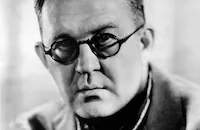
John Ford
Cast

Charles Winninger

Arleen Whelan
John Russell

Stepin Fetchit
Russell Simpson

Ludwig Stossel
Francis Ford
Paul Hurst
Mitchell Lewis
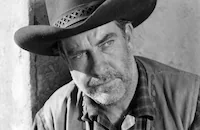
Grant Withers
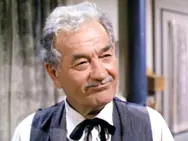
Milburn Stone

Dorothy Jordan
Elzie Emanuel
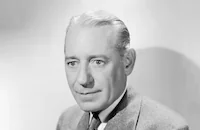
Henry O'neill

Slim Pickens

James Kirkwood
Ernest Whitman
Trevor Bardette

Eve March
Hal Baylor
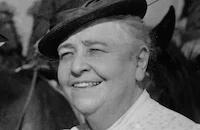
Jane Darwell
Ken Williams
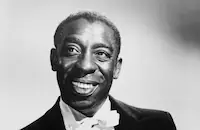
Clarence Muse

Mae Marsh
Allene Roberts
Almira Sessions
Elizabeth Slifer
Everett Glass
Jack Pennick
James Lilburn
Mickey Simpson
Marcoreta Hellman
Ruth Clifford
Louis Mason
Willa Pearl Curtis
Myrtle Anderson
Joe Rickson
Philip Kieffer
James P. Jackson
Dan Borzage
Barry Regan

Jack Mower
Cliff Lyons
Chuck Hayward
Frank Connor
Mimi Doyle
Mrs. Bennie Washington
Crew
Jim Barker
T. A. Carman
Jack Coffee
Merian C. Cooper
Dan D. Emmett
D. A. Esrom
Stephen Foster
Don Hatswell
Frank Hotaling
Lee Lukather
John Mccarthy Jr.
Melvin M. Metcalfe
George Milo
Theodore Morse
Jack Murray
Adele Palmer
Harry Scharf
Wingate Smith
Laurence Stallings
Archie Stout
Arthur Sullivan
Howard Wilson
Herbert J. Yates
Victor Young

Film Details
Technical Specs

Quotes
Trivia
Notes
Although reviews variously listed the film's running time as 90 or 92 minutes, footage obtained from copyright records lists a length of 9,129 ft., indicating a duration of approximately 100 minutes. When the film was released on video, the running time was 100 minutes. According to modern sources, the longer running time reflected the original version prepared by director John Ford, but the version released to theaters was cut to approximately 90 minutes. The riverboat sequence was shot near Sacramento, CA, according to September 1952 Hollywood Reporter news items. Hollywood Reporter news items also add Penny Coker to the cast, but her appearance in the film has not been confirmed. Modern sources list Barbara Ford as assistant editor.
The Sun Shines Bright was the final production of Ford's Argosy Pictures Corp., and modern sources state that its financial failure contributed to the demise of Argosy Pictures. Irvin S. Cobb's characters were also the basis of Ford's 1934 Fox picture, Judge Priest, which featured Will Rogers and Stepin Fetchit.












